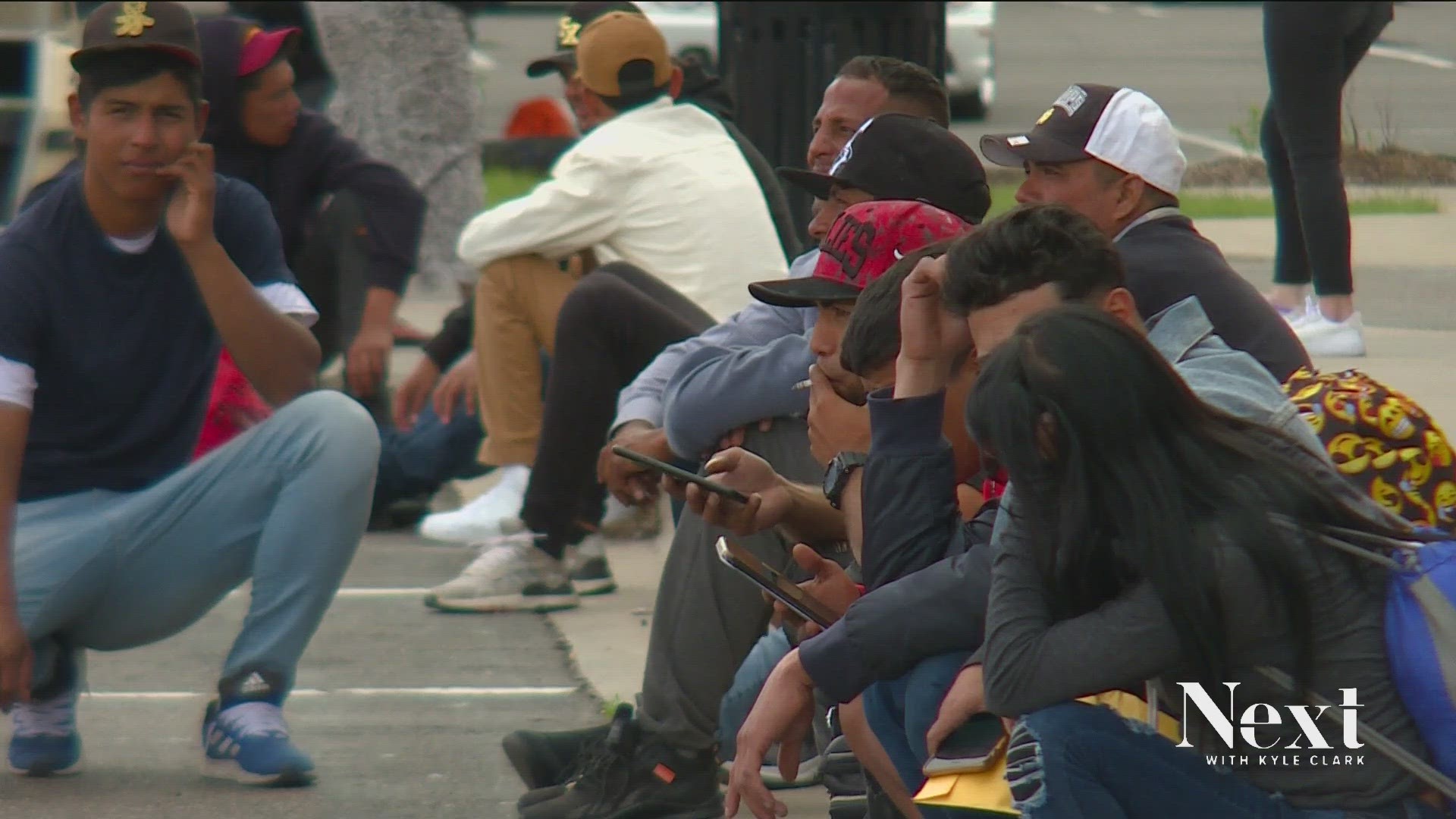DENVER — Nearly 10,000 migrants have made their way through Denver since December. The 10,000th person to arrive will likely be here Tuesday evening, according to the city's tracking dashboard.
What no one knows is when they will come next or how many there will be. Predicting their arrivals has proved nearly impossible.
"We are in contact with the bus companies that are bringing folks here and we’re really trying to get visibility from the federal government to know when people come and apply for asylum, where are they heading to next?" said Emily Williams, spokesperson for the Denver Joint Information Center.
The majority of the 10,000 people who have arrived since December have moved on to other states.
"We even at our welcome centers ask people who are arriving themselves, 'How did you find out about Denver? Who do you know who’s coming?'" Williams said. "We’re really exploring every avenue to understand how people are coming, when they’re coming, and when they will be here."
Leaders in Denver are also in constant communication with leaders in cities like El Paso, though no one from Denver has yet gone down there. The goal is to not be blindsided when people start arriving so the city can be better prepared.
Denver declared a state of emergency late last year to help handle migrant arrivals. That state of emergency never ended. But last week when hundreds of migrants arrived here every day, Williams admits the city was unprepared.
"In that instance, we were definitely not ready at that time for that number of people," Williams said.
Denver was prepared for people to come after Title 42 ended. Instead, they arrived the week before.
From May 8 to May 14, the city spent more than $360,000 on more than 1,000 bus tickets for migrants wanting to continue their journey. Most went to Chicago and New York. The city has already spent $17 million helping migrants, with little reimbursed by the federal government.
"At the end of the day, we do not get a manifest that says expect this many arrivals. Therefore, we are not able to prepare with that detail," Williams said. "This is a crisis and there is never a perfect response in a crisis. But we are doing everything we can to prepare."
SUGGESTED VIDEOS: Full Episodes of Next with Kyle Clark

